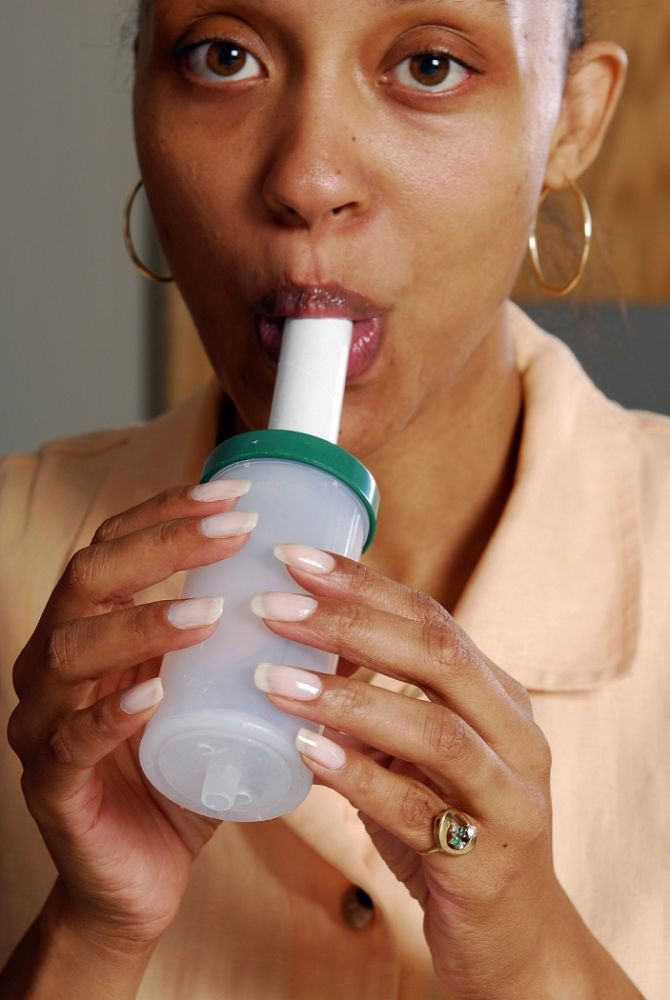New Cancer Breath Test May Detect Early Stage Lung and Breast Cancers

A new breath test designed to detect lung and breast cancers in people is showing promising results, according to scientists.
The new research, presented June 2 at the annual American Society of Clinical Oncology (ASCO) meeting in Chicago, found that lung cancer patients had 75 breath volatile organic compounds that were different from healthy participants.
Researchers also found that the new breathalyzer was able to detect whether patients had breast cancer 78 percent of the time.
The first lung cancer study consisted of 25 newly diagnosed female patients with non-small cell lung cancer and 25 females without the cancer, and the second breast cancer study involved breath samples of 20 healthy women over the age of 40 and 20 women recently diagnosed with stage II-IV breast cancer and who had not yet received treatment.
Researchers said that as patients breathe into the breathalyzer, chemical compounds are trapped and examined by a sensor, which combines gas chromatography, a technique for separating complex compounds, with mass spectrometry that identifies the chemical makeup of a substance.
The specific patterns in the compounds are then established and used to determine whether or not the disease is present.
Researchers said that early lung cancer diagnosis has long been a clinical challenge, and a simple and inexpensive breath test to detect it early would make a big impact on early detection of the disease.
When lung cancer patients are diagnosed at Stage I, the earliest stage, their disease is curable in more than 70 percent of cases, compared to when it is diagnosed at Stage 3, where it has a cure rate of less than 24 percent.
Investigators cautioned that the findings need to be confirmed in larger, more rigorous studies before the test can be used as a diagnostic tool.
Researchers at the Georgia Institute of Technology and the Winship Cancer Institute of Emory University say they start analyzing the genetic signatures of the 75 unique breath volatile organic compounds to see whether the signature differs based on the stage of the disease.
Researcher Charlene Bayer, who developed the breath test, said that because the new breathalyzer has the potential to offer immediate results in a doctor's office, the device may also be used to help improve early breast cancer detection for those who do not have the resources for a mammogram, more easily conduct interval testing for individuals with a genetically high risk for breast cancer, as well as help in recurrence testing after breast cancer treatment.



























